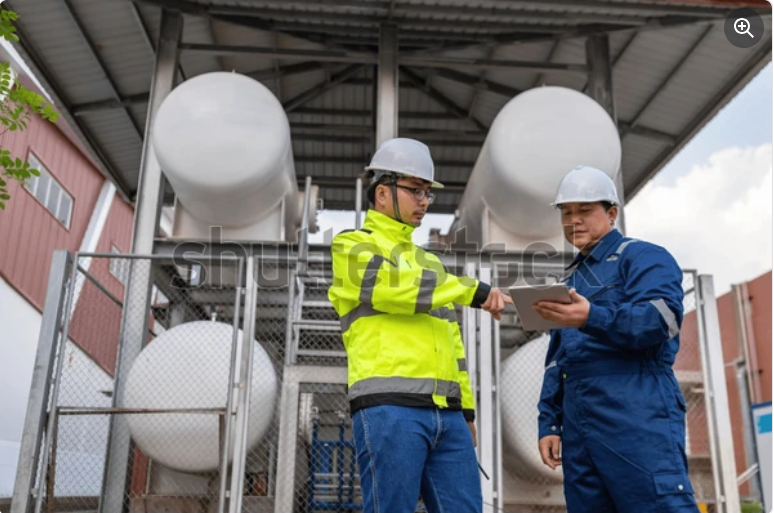On-site bulk fuel tanks are crucial for businesses that rely on a steady and efficient fuel supply. Whether it’s for construction, agriculture, or transportation, having an on-site fuel tank can significantly enhance operational efficiency and reduce downtime. This article explores the key factors to consider when purchasing an on-site bulk fuel tank, ensuring you make an informed decision that meets your business needs and complies with regulatory standards. Additionally, we will highlight how Fuel Me’s solutions can provide unmatched support and reliability in your fuel storage needs.
Fuel Storage Capacity
Determining the required fuel storage capacity is the first step in choosing an on-site bulk fuel tank. This involves assessing your current fuel consumption and considering future growth and seasonal fluctuations. For instance, a construction company might need more fuel during peak building seasons. By accurately estimating your fuel needs, you can select a tank that provides adequate storage without frequent refills, ensuring a consistent fuel supply.
- Current Consumption: Calculate your current fuel usage on a daily, weekly, and monthly basis.
- Future Growth: Consider potential business expansion that may increase fuel needs.
- Seasonal Fluctuations: Account for periods of higher fuel consumption, such as peak construction seasons or harvest times in agriculture.
Selecting the right capacity not only ensures efficiency but also helps in managing costs effectively. Oversized tanks can lead to unnecessary expenses, while undersized tanks may result in frequent refueling, leading to operational disruptions.
Tank Material and Construction
The material and construction of the fuel tank are critical factors that influence durability, corrosion resistance, and compatibility with fuel types. Common materials include:
- Steel: Known for its strength and durability, steel is a popular choice for fuel tanks. However, it requires protective coatings to prevent rust and corrosion. Steel tanks are suitable for both above-ground and underground installations and can handle various environmental conditions.
- Fiberglass: Fiberglass tanks are resistant to corrosion and are suitable for various fuel types. They are lightweight and durable but can be more expensive than steel. These tanks are often used for underground storage due to their resistance to environmental factors and long lifespan.
- Polyethylene: These tanks are highly resistant to corrosion and chemical reactions. They are also lightweight and relatively easy to install but might not be as durable as steel in certain environments. Polyethylene tanks are ideal for smaller-scale operations and are often used for temporary storage solutions.
Choosing the best material for onsite diesel fueling tanks depends on your specific needs, including the type of fuel, environmental conditions, and budget. For instance, in areas with high humidity or saline environments, corrosion-resistant materials like fiberglass or polyethylene might be preferred.
Compliance and Safety Standards
Compliance with local, state, and federal regulations is essential when installing an on-site bulk fuel tank. These regulations cover aspects such as tank design, installation, and maintenance to ensure safety and environmental protection. Key safety features to consider include:
- Leak Detection: Systems to detect and alert you of any leaks. These systems can include sensors and alarms that provide real-time monitoring.
- Overfill Prevention: Mechanisms to prevent overfilling and potential spills. Automatic shutoff valves and alarms are common features to prevent overflows.
- Grounding Requirements: Ensuring the tank is properly grounded to prevent static electricity buildup and potential fires. Grounding and bonding are critical to prevent electrical hazards, especially in flammable fuel storage.
Adhering to these standards not only ensures regulatory compliance but also enhances the safety and reliability of your fuel storage system. Regular inspections and maintenance are also mandated by regulations to ensure ongoing compliance and safety.
Installation Requirements
Proper installation of the fuel tank is crucial for safe and efficient operation. This involves site preparation, which includes:
- Foundation: Ensuring a stable foundation that can support the tank’s weight when full. The foundation should be designed to prevent shifting or settling, which can compromise the tank’s integrity.
- Spacing: Adequate spacing from other structures to comply with safety regulations and allow for easy access during refueling. Regulatory codes often specify minimum distances from buildings, property lines, and other tanks.
- Accessibility: Ensuring the tank is accessible for fuel delivery trucks and maintenance personnel. Easy access is essential for regular refueling, inspections, and emergency response.
Additionally, consider environmental factors such as seismic zones, weather conditions, and soil composition, which can impact the tank’s stability and longevity. For example, in areas prone to earthquakes, additional anchoring and flexible connections may be required to prevent damage.
Maintenance and Long-term Costs
Different tank materials have varying maintenance requirements. Regular maintenance ensures the tank’s longevity and operational efficiency. Key considerations include:
- Maintenance Requirements: Routine inspections and maintenance to detect and address potential issues early. This includes checking for leaks, corrosion, and structural integrity.
- Operational Costs: Consider energy efficiency, potential fuel losses, and insurance premiums associated with different tank types. Energy-efficient tanks with advanced insulation can reduce heating costs in cold climates.
- Insurance Premiums: Some materials and designs may qualify for lower insurance premiums due to their safety features and durability.
Choosing a tank with lower maintenance needs and operational costs can result in long-term savings for your business. Investing in high-quality tanks and regular maintenance can prevent costly repairs and environmental fines.
Supplier Reputation and Support
Selecting a reputable supplier with extensive experience in fuel tank installations is vital. A good supplier will offer:
- Warranty Coverage: Comprehensive warranties that cover manufacturing defects and other issues. A strong warranty indicates the supplier’s confidence in their product’s durability and performance.
- Technical Assistance: Support services to assist with installation, maintenance, and troubleshooting. Reliable technical support can ensure smooth installation and address any issues promptly.
- Emergency Response: Prompt response in case of emergencies to minimize downtime and ensure safety. Having a supplier who can quickly provide repairs or replacements is crucial for maintaining operations.
Partnering with a reliable supplier like Fuel Me ensures you receive high-quality products and exceptional support throughout the tank’s lifecycle. Our expertise and commitment to customer satisfaction make us a trusted partner for all your fuel storage needs.
Ensuring the Best Fuel Storage Solution for Your Business
Investing in the right on-site bulk fuel tank is crucial for maintaining a steady and reliable fuel supply. By considering storage capacity, material and construction, compliance and safety standards, installation requirements, maintenance costs, and supplier reputation, you can make an informed decision that aligns with your business objectives. Fuel Me is committed to providing innovative and reliable fuel storage solutions, backed by exceptional support and expertise, ensuring your operations run smoothly and efficiently.
Choosing Fuel Me means choosing a partner dedicated to enhancing your operational efficiency and ensuring compliance with all safety and regulatory standards. Our comprehensive solutions and experienced team are here to support your business every step of the way, from selection and installation to maintenance and emergency support. Let us help you find the perfect on-site bulk fuel tank solution that meets your specific needs and ensures long-term success.
Making an Informed Decision for Optimal Fuel Storage
Investing in an on-site bulk fuel tank requires careful consideration of several factors to ensure it meets your operational needs and complies with all regulatory requirements. By evaluating your fuel storage capacity, tank material, compliance with safety standards, installation requirements, maintenance needs, and supplier reputation, you can make a well-informed decision that optimizes efficiency and safety. Fuel Me offers a comprehensive range of high-quality fuel storage solutions, expert guidance, and exceptional support to help you achieve seamless and reliable fuel management. Partner with us to experience the benefits of advanced fuel storage technology and dedicated customer service, ensuring your business remains fuel-efficient and compliant with industry standards.














































